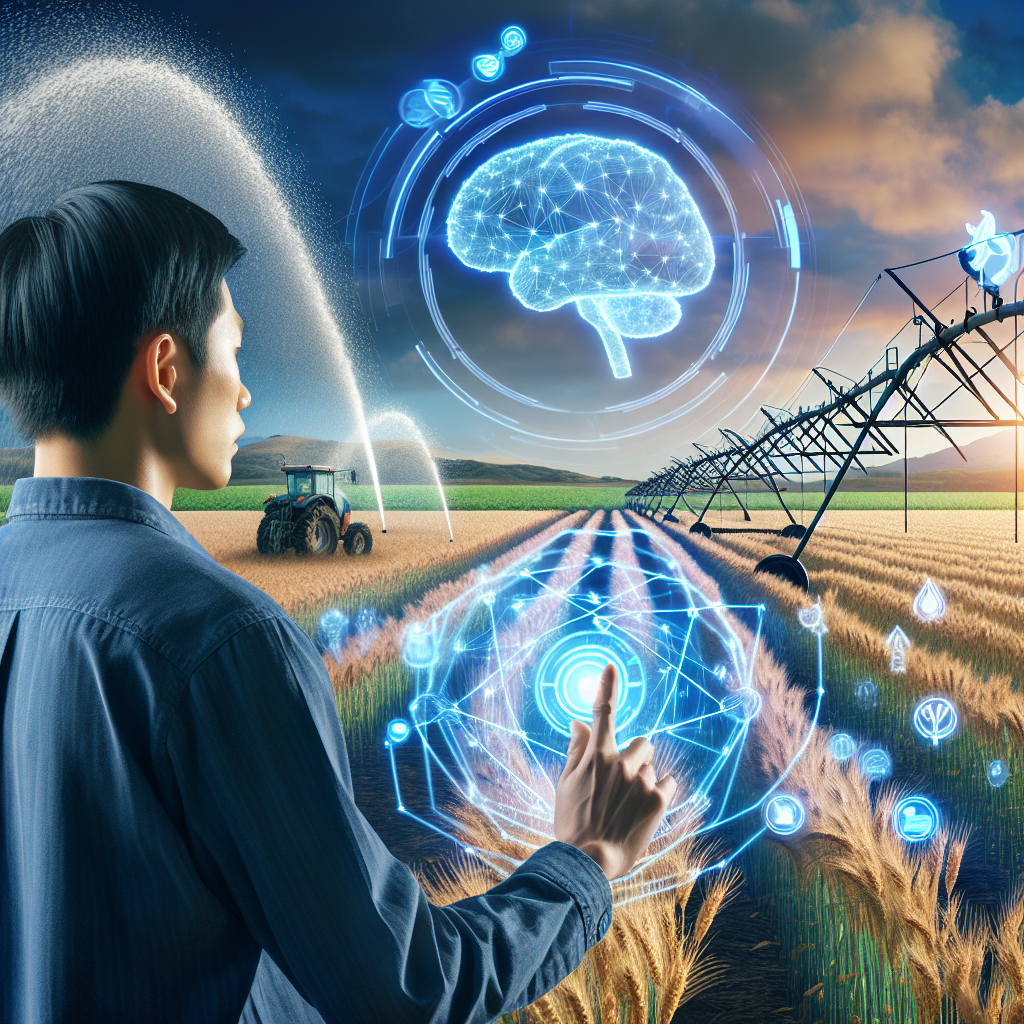AI-Driven Solutions for Irrigation Management
Introduction
Irrigation is a crucial aspect of agriculture, as it ensures that crops receive the necessary amount of water for optimal growth and yield. However, traditional methods of irrigation can be inefficient and wasteful, leading to water shortages and environmental degradation. This is where AI-driven solutions for irrigation management come into play, offering farmers a more precise and sustainable way to water their crops.
AI technology has revolutionized many industries, and agriculture is no exception. By combining AI algorithms with data from sensors, weather forecasts, and crop models, farmers can optimize their irrigation practices to maximize crop production while minimizing water usage. In this article, we will explore how AI-driven solutions are transforming irrigation management and helping farmers overcome the challenges of water scarcity and climate change.
Benefits of AI-Driven Solutions for Irrigation Management
1. Precision Agriculture: AI technology allows farmers to monitor soil moisture levels, crop health, and weather conditions in real-time. This data can be used to create customized irrigation schedules that are tailored to the specific needs of each crop. By watering plants only when necessary, farmers can reduce water waste and improve crop yield.
2. Water Conservation: With AI-driven solutions, farmers can optimize their irrigation practices to minimize water usage. By accurately predicting when and how much water to apply, farmers can avoid over-irrigation and reduce the risk of water runoff and soil erosion. This not only conserves water but also reduces the environmental impact of agriculture.
3. Increased Crop Yield: By providing crops with the right amount of water at the right time, AI-driven solutions can help farmers improve crop yield and quality. By optimizing irrigation practices, farmers can ensure that plants receive the necessary nutrients and moisture to grow healthy and strong, leading to higher yields and better profits.
4. Cost Savings: AI-driven solutions can help farmers save money by reducing water and energy costs associated with irrigation. By using data-driven insights to optimize irrigation practices, farmers can lower their water bills and energy consumption, leading to significant cost savings in the long run.
5. Adaptability: AI-driven solutions are adaptable to different crop types, soil conditions, and climate zones. This flexibility allows farmers to use AI technology to optimize irrigation practices for a wide range of crops, from fruits and vegetables to grains and cash crops. By tailoring irrigation schedules to the specific needs of each crop, farmers can maximize productivity and profitability.
AI-Driven Solutions in Action
One example of AI-driven solutions for irrigation management is the use of soil moisture sensors and weather forecasts to optimize irrigation schedules. By collecting data on soil moisture levels, temperature, and humidity, farmers can make informed decisions about when and how much water to apply to their crops. This data is analyzed by AI algorithms to create customized irrigation schedules that maximize water efficiency and crop yield.
Another example is the use of drones and satellite imagery to monitor crop health and water stress. By flying drones over fields or using satellite images, farmers can detect early signs of water stress or nutrient deficiencies in their crops. This data is analyzed by AI algorithms to provide farmers with actionable insights on how to adjust their irrigation practices to improve crop health and yield.
FAQs
Q: How do AI-driven solutions for irrigation management work?
A: AI-driven solutions for irrigation management use sensors, weather forecasts, and crop models to collect and analyze data on soil moisture levels, crop health, and weather conditions. This data is then used to create customized irrigation schedules that optimize water usage and crop yield.
Q: What are the benefits of using AI-driven solutions for irrigation management?
A: The benefits of using AI-driven solutions for irrigation management include precision agriculture, water conservation, increased crop yield, cost savings, and adaptability to different crop types and climate zones.
Q: Are AI-driven solutions for irrigation management cost-effective?
A: While the initial cost of implementing AI-driven solutions for irrigation management may be high, the long-term cost savings from reduced water and energy usage can offset these expenses. Additionally, the increased crop yield and profitability that result from using AI technology can make it a cost-effective investment for farmers.
Q: Can AI-driven solutions for irrigation management be used for all types of crops?
A: Yes, AI-driven solutions for irrigation management are adaptable to different crop types, soil conditions, and climate zones. This flexibility allows farmers to use AI technology to optimize irrigation practices for a wide range of crops, from fruits and vegetables to grains and cash crops.
In conclusion, AI-driven solutions for irrigation management offer farmers a more precise and sustainable way to water their crops. By using AI technology to optimize irrigation practices, farmers can conserve water, increase crop yield, and reduce costs. With the challenges of water scarcity and climate change becoming more pressing, AI-driven solutions are essential for ensuring the long-term sustainability of agriculture.

